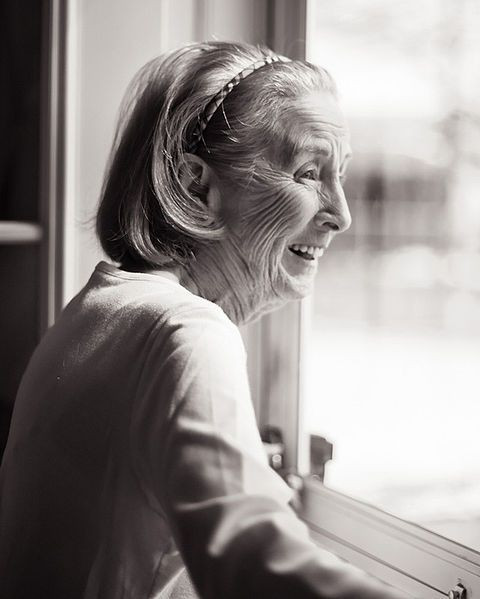Skin Aging: The 4 Bad Habits That Are Ruining Your Skin

The desire to have healthy, younger looking skin as you age is shared among most Americans. As a whole, Americans spent 14.6 million in cosmetic plastic surgery procedures in 2012, says the American Society of Plastic Surgeons. Facial rejuvenation procedures such as facelifts are one of the most common types of cosmetic surgical procedures — 126,000 surgeries were done in the last year.
That's not a surprise, as skin aging is a condition that commonly affects both genders, says the National Center for Biotechnology Information (NCBI). As the most visible sign of aging, skin changes in the epidermis start to become more apparent over time with wrinkles and sagging of the skin.
Intrinsic Aging Versus Extrinsic Aging
To effectively combat skin aging, it is important to decipher between the two types of skin aging: intrinsic and extrinsic.
Intrinsic Aging
The natural aging process, otherwise known as "intrinsic aging," refers to the aging of the skin done by your genes and not external environmental factors. In this process, the collagen production in your skin begins to slow down so it appears to less elastic. While the natural aging process is said to begin in a person's 20s, intrinsic signs of aging are not always visible until years later, says Skincarephysicians.com. While genes control how fast the natural aging process unfolds, eliminating the free radicals in your body with antioxidants can help reduce the appearances of age spots, blemishes and wrinkles.
According to DermaMedics Professional, the signs of intrinsic aging are the following:
- Fine wrinkles
- Thin and transparent skin
- Loss of underlying fat, leading to hollowed cheeks and eye sockets as well as noticeable loss of firmness on the hands and neck
- Dry skin that may itch
Extrinsic Aging
Unlike the natural aging process, extrinsic aging is the result of environmental factors that play a role in how fast your skin ages. The external factors in this process are usually the everyday habits you may partake in such as, sleep, exercise, cigarette smoking and alcohol consumption. The National Institutes of Health (NIH) says sunlight is the major environmental factor affiliated with skin aging. The common signs of intrinsic aging also appear in extrinsic aging because the environmental factors are what influence a faster aging process on the skin.
Habits That Cause Skin Aging
While plastic surgery can (sort of) reverse the effects of aging, the costly option can leave a dent in your wallet. A cheaper and healthier way reserve your healthy, looking skin is to learn what daily habits you need to kick to the curb that can speed up your skin aging process.
1. Sleep Deprivation
You do need your "beauty sleep" to reduce signs of skin aging that are heightened by irregular sleeping patterns. In a recent study published in the Journal of Investigative Dermatology, researchers examined the effects of skin quality and skin aging. The participants in the study were 60 pre-menopausal women who were between the ages of 30 and 49. Half of the participants had poor sleeping patterns and the other half had good sleeping patterns. The women's skin was also evaluated in the study to establish a correlation between poor sleep quality and skin aging. The results of the study showed those that were classified as poor quality sleepers had more visible signs of skin aging such as wrinkles and loss of firmness. The less you sleep, the faster you skin will age.
2. Wearing Make Up To Bed
After a late night out, the only thing you want to do is go to your bed and sleep. However, going directly to bed without removing your make up can speed up skin aging. The dirt and pollution on your skin from the day will build up at night if left on the skin, which can lead to unwanted breakouts when you wake up in the morning. As make up clogs your pores, it prevent the production of sebum — a lubricant that helps moisturize and protect your skin, says Discovery Health. For late nights where you're out on the town, use face cleansing towelettes as a quick-and-easy way to remove make up.
3. No SPF
The main cause of extrinsic aging is excessive sun exposure without the application of a sunscreen with sun protection factor (SPF). Skipping out on the sunscreen can cause harmful ultraviolet (UV) rays to penetrate the skin and increase aging, along with the risk of skin cancer. To protect yourself while you are outside for long periods of time, it is important to apply an SPF of 30 or higher and wear protective clothing, says Medline Plus.
4. Lack of Exercise
Not doing moderate exercises can put you at risk for the acceleration of skin aging. Exercise — whether moderate or high intensity — will help tone your muscles and continue blood circulation throughout your body.
"As you use your muscles, they begin to make demands on the rest of the body," says Discovery Health. Your muscles will alert your body to remain alert which will increase energy and allow the blood to flow throughout your immune system. Improved circulation is an anti-aging antidote that can help you look younger even when you've hit old age.



























